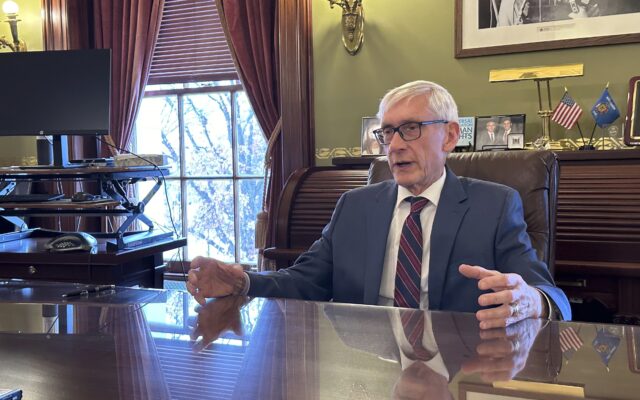Wisconsin governor vetoes transgender high school athletics ban

By SCOTT BAUER Associated Press
MADISON, Wis. (AP) — Wisconsin Gov. Tony Evers vetoed a bill Tuesday that was passed by the Republican-controlled Legislature to ban high school transgender athletes from competing on teams that align with their gender identity.
Evers had promised to veto the bill ever since it was introduced. Democrats did not have the votes to stop its passage in the Legislature. He vetoed it in the Capitol surrounded by Democratic lawmakers, transgender advocates, the mayor of Madison and others.
Republicans don’t have the votes needed to override the veto.
Evers said in his veto message that this type of legislation “harms LGBTQ Wisconsinites’ and kids’ mental health, emboldens anti-LGBTQ harassment, bullying, and violence, and threatens the safety and dignity of LGBTQ Wisconsinites, especially our LGBTQ kids.”
Evers vowed that as long as he is governor, he will not allow for “radical policies targeting LGBTQ individuals and families and threatening LGBTQ folks’ everyday lives and their ability to be safe, valued, supported, and welcome being who they are.”
The bill proposed to limit high school athletes to playing on teams that match the gender they were assigned at birth.
Republicans who backed the bill argued it was a matter of fairness for non-transgender athletes. But bill opponents argued there was no real issue with transgender high school athletes in Wisconsin and said the proposed ban was a form of discrimination and harmful to transgender youth.
The Wisconsin Interscholastic Athletic Association requires transgender athletes to undergo hormone therapy before they can play on the teams of their choice. The association’s policy is modeled after NCAA requirements for transgender athletes.
At least 20 states have approved a version of a blanket ban on transgender athletes playing on K-12 and collegiate sports teams statewide, but a Biden administration proposal to forbid such outright bans is set to be finalized this year after multiple delays and much pushback. As proposed, the rule would establish that blanket bans would violate Title IX, the landmark gender-equity legislation enacted in 1972.






